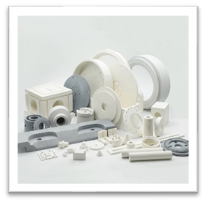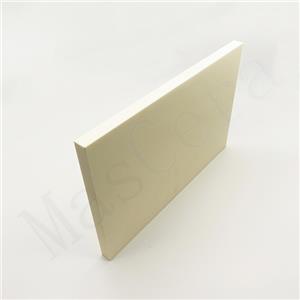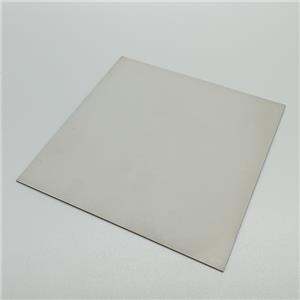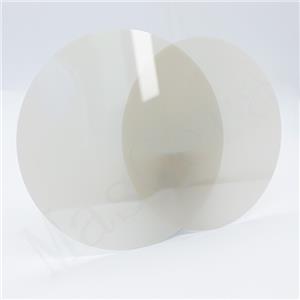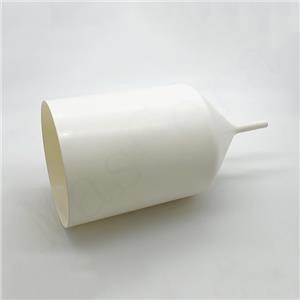News
Boron Nitride Ceramics for High-Temperature Applications
Boron Nitride Ceramics, especially in their hot-pressed form (HPBN), have become essential in many demanding environments where extreme heat, high voltage, chemical corrosion, or non-wettability are critical concerns. Mascera provides precision-engineered HPBN components that perform reliably in harsh conditions and meet the requirements of industries such as metallurgy, aerospace, vacuum processing, and advanced electronics.
14-05-2025-
Boron Nitride Ceramics for High-Temperature Applications
Boron Nitride Ceramics, especially in their hot-pressed form (HPBN), have become essential in many demanding environments where extreme heat, high voltage, chemical corrosion, or non-wettability are critical concerns. Mascera provides precision-engineered HPBN components that perform reliably in harsh conditions and meet the requirements of industries such as metallurgy, aerospace, vacuum processing, and advanced electronics.
14-05-2025 -
What is the main use of Aluminum Nitride Ceramics?
Aluminum Nitride Ceramics have emerged as one of the most important materials in modern technology. By offering an unparalleled combination of high thermal conductivity, superior electrical insulation, and robust mechanical performance, they solve critical engineering challenges across electronics, aerospace, and beyond.
13-05-2025 -
What is the Main Use of Pyrolytic Boron Nitride Ceramics?
Pyrolytic Boron Nitride stands out in modern high-temperature and ultra-high vacuum processes due to its superior thermal stability, electrical insulation, chemical inertness, and cleanliness. Whether in PBN crucibles, high-temperature insulation systems, or precision electronic manufacturing, Pyrolytic Boron Nitride meets the demanding requirements of extreme applications.
12-05-2025 -
What Is Ceramic Metallization with Molybdenum-Manganese?
Molybdenum-Manganese Metallization involves applying a composite layer of molybdenum (Mo) and manganese (Mn) onto the surface of a ceramic substrate, typically alumina. This metalized layer is sintered at high temperatures to form a durable bond. The surface is then usually nickel-plated to allow brazing with metal components.
06-05-2025 -
Benefits of Ceramic Grinding Cores for Food Use
Mascera’s alumina ceramic grinder parts, ceramic grinding cores, food-grade ceramic burrs, ceramic grinder mechanisms, and manual ceramic grinder parts deliver superior grinding quality, enhanced durability, and uncompromised food safety — making them the trusted choice for manufacturers and users worldwide.
28-04-2025 -
Physical Properties of Technical Ceramic
Different types of ceramics—based on their composition, crystal structure, and sintering process—demonstrate varying ceramic physical properties. Among them, three specific indicators are particularly critical in industrial applications and directly affect the performance, longevity, and manufacturability of technical ceramic materials: ceramic thermal expansion, thermal conductivity of ceramics, and ceramic density.
24-04-2025
-
Expansion of Multi-Wire Sawing Technology and Production Capabilities for Precision Ceramics in Europe
At the start of 2025, KYOCERA Fineceramics Europe GmbH announced the establishment of a new facility in Erfurt, Germany, enhancing its existing multi-wire saw technology capabilities and production infrastructure.
21-01-2025 -
Indian Tech Firm to Invest 2.9 Billion RMB in Silicon Carbide Semiconductor Plant
On December 23, media outlets such as The Economic Times reported that Silectric Semiconductor, a subsidiary of Zoho Corporation, will establish Karnataka's first semiconductor manufacturing plant in India, dedicated to integrated production of silicon carbide.
31-12-2024 -
Development of Silicon Nitride for Advanced Chip Testing Applications
Recently, Kyocera announced the development of a new silicon nitride ceramic material for functional testing of next-generation microchips. This new material boasts enhanced thermal expansion properties and flexural strength, enabling the production of thin silicon nitride plates with extremely narrow spacing between contact probes, which is critical for testing next-generation microchips.
05-11-2024 -
60 Million Investment in the Construction of a Medical Implant Precision Ceramics Facility
Recently, KYOCERA held a groundbreaking ceremony for its fine ceramics factory for medical implants, located in Waiblingen, near Stuttgart, Germany. This facility will specialize in manufacturing high-quality ceramic heads used in hip prostheses and other implant applications. The project is expected to be completed by September next year.
14-10-2024 -
Construction Begins on Second Phase of World’s Largest High-Purity Alumina Plant
Recently, Alpha HPA, an Australian company, has commenced construction on the second phase of the world’s largest single-location ultra-high-purity alumina refinery.
13-09-2024 -
Silicon Carbide Ceramics Market for Semiconductors to Reach $1.578 Billion by 2030
According to data from QY Research, the global market size for silicon carbide (SiC) ceramics used in semiconductors was $1.111 billion in 2023. Driven by the rigid demand from downstream industries, it is projected that the silicon carbide ceramics market will grow to $1.578 billion by 2030, with a compound annual growth rate (CAGR) of 5.09% from 2024 to 2030.
09-08-2024
-
Notice for 2025 Labor Day holiday
21-04-2025 -
Notice for 2025 Spring Festival Holiday
15-01-2025 -
Notice for 2024 National Day holiday
30-09-2024 -
Notice for 2024 Labor Day holiday
21-04-2024 -
Notice for 2024 Spring Festival Holiday
07-02-2024

